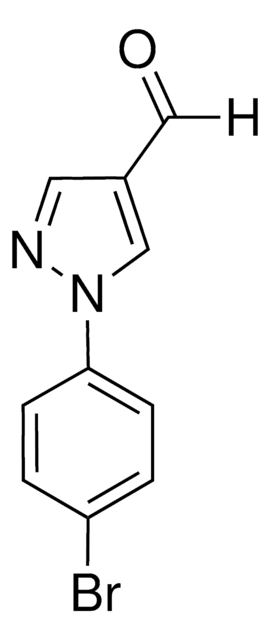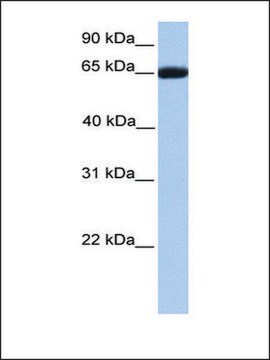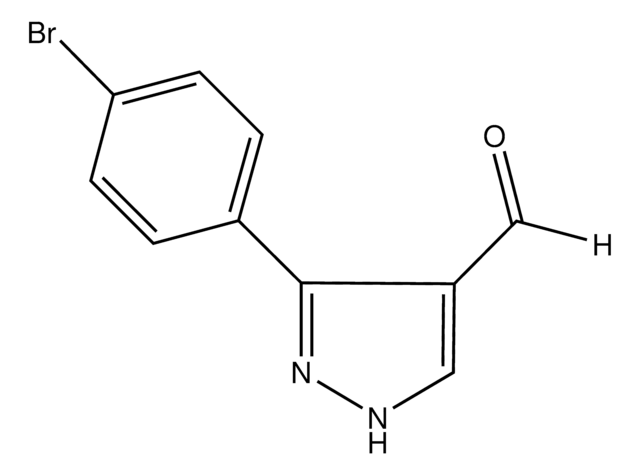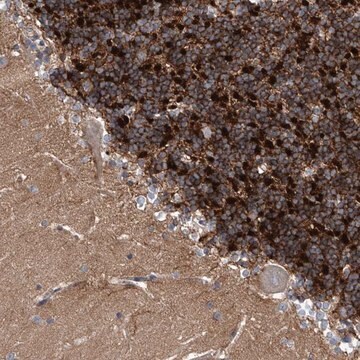推薦產品
生物源
mouse
品質等級
抗體表格
ascites fluid
抗體產品種類
primary antibodies
無性繁殖
1B7D7, monoclonal
物種活性
rat, human
技術
immunofluorescence: suitable
immunohistochemistry: suitable
western blot: suitable
同型
IgG1
UniProt登錄號
運輸包裝
wet ice
目標翻譯後修改
unmodified
基因資訊
human ... NLK(51701)
一般說明
Glucose-6-phosphate isomerase (GPI) alternatively known as Autocrine motility factor (AMF), Neuroleukin (NLK), Phosphoglucose isomerase (PGI), Phosphohexose isomerase (PHI) or Sperm antigen 36 (SA-36) and encoded by the gene name GPI is major enzyme in glycolysis and gluconeogenesis. Glucose-6-phosphate isomerase rearranges glucose-6-phosphate (from the phosphorylation of glucose via hexokinases) into fructose-6-phosphate (F6P) as the second step in glycolysis. Interestingly however, Glucose-6-phosphate isomerase plays an entirely different sort of role outside of the cell than when it is inside being part of glycolysis. When secreted, Glucose-6-phosphate isomerase acts as an autocrine motility factor for various cancers and is critical for metastasis, while when secreted in nervous tissue it acts as a neurotrophic factor for sensory and spinal neurons and in lymphocytes it acts as a lymphokine upon T cell ligand binding and stimulates B cells to secrete immunoglobulin. Mutations in Glucose-6-phosphate isomerase are the second most frequent cause of inherited glycolytic-enzymopathy in humans. This autosomal recessive disorder is characterized by anon-spherocytic anemia of variable severity which can present with neuromuscular dysfunctions defined by muscle weakness and mental retardation. EMD-Millipore’s Anti-Glucose-6-phosphate isomerase monoclonal antibody has been tested in western blot on recombinant protein as well as cell lysates from HepG2, SMMC-7721 and rat liver tissue and in paraffin embedded immunohistochemistry on human kidney and fluorescent immunocytochemistry on L-O2 cells in culture.
免疫原
Purified recombinant fragment of human GPI expressed in E. Coli.
應用
Anti-GPI Antibody, clone 1B7D7 is a highly specific mouse monoclonal antibody, that targets Glucose-6-phosphate isomerase & has been tested in western blotting, IHC & Immunofluorescence.
Immunohistochemistry Analysis: A 1:200-1,000 dilution from a representative lot detected GPI in human kidney tissue.
Immunofluorescent Analysis: A 1:200-1,000 dilution from a representative lot detected GPI in L-02 cells.
Optimal working dilutions must be determined by end user.
Immunofluorescent Analysis: A 1:200-1,000 dilution from a representative lot detected GPI in L-02 cells.
Optimal working dilutions must be determined by end user.
品質
Evaluated by Western Blotting in HepG2, SMMC-7721, and rat liver lysates.
Western Blotting Analysis: A 1:500-2,000 dilution of this antibody detected GPI in HepG2, SMMC-7721, and rat liver lysates.
Western Blotting Analysis: A 1:500-2,000 dilution of this antibody detected GPI in HepG2, SMMC-7721, and rat liver lysates.
標靶描述
~56 kDa observed. Uncharacterized bands may appear in some lysate(s).
分析報告
Control
HepG2, SMMC-7721, and rat liver lysates
HepG2, SMMC-7721, and rat liver lysates
Not finding the right product?
Try our 產品選擇工具.
儲存類別代碼
12 - Non Combustible Liquids
水污染物質分類(WGK)
nwg
閃點(°F)
Not applicable
閃點(°C)
Not applicable
分析證明 (COA)
輸入產品批次/批號來搜索 分析證明 (COA)。在產品’s標籤上找到批次和批號,寫有 ‘Lot’或‘Batch’.。
我們的科學家團隊在所有研究領域都有豐富的經驗,包括生命科學、材料科學、化學合成、色譜、分析等.
聯絡技術服務







